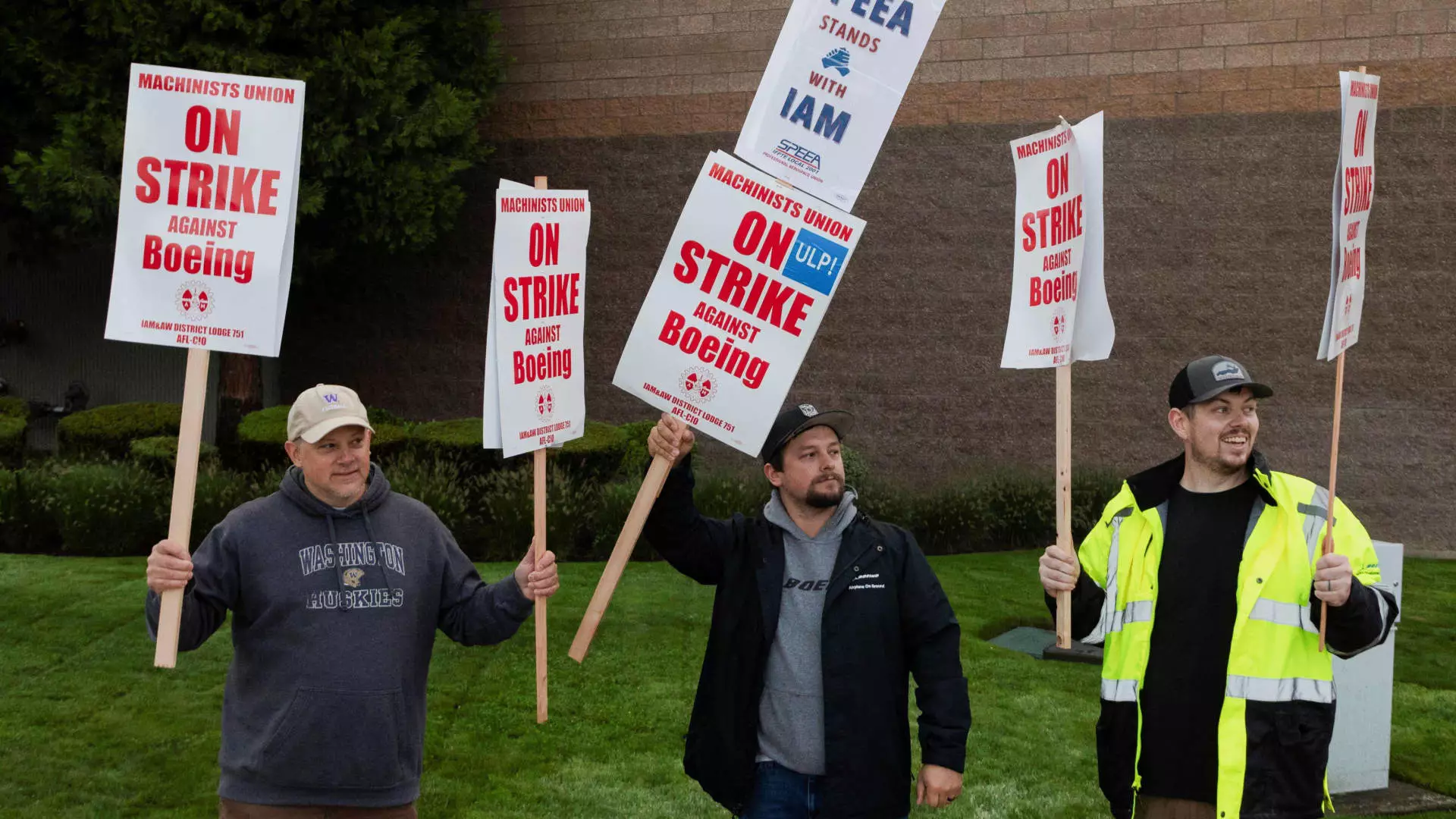The recent labor strike at Boeing reflects the deepening rift between management and factory workers, highlighting critical issues in the aerospace giant’s operational and financial stability. CFO Brian West’s comments captured a sense of urgency as he underscored that the strike, which commenced shortly after midnight on Friday, could severely hinder aircraft productions, particularly of the popular 737 Max model. The implication of this work stoppage extends beyond immediate production delays; it poses a significant challenge to Boeing’s recovery path following a series of crises that have beset the firm in recent years.
While strikes are not unfamiliar in the labor landscape, the timing and context of this particular incident could amplify its effects. The aerospace sector has been grappling with increased scrutiny over safety measures, alongside external market pressures and internal production issues. Thus, any interruption in operations can have a cascading impact not only on delivery schedules but also on investor confidence and market performance.
Boeing’s financial outlook is precarious, and the strike further complicates the situation. As West noted, the financial repercussions of the labor stoppage will largely depend on its duration. Analysts predict that a prolonged strike could translate to billions in losses for the company. Jefferies aerospace analyst Sheila Kahyaoglu suggested a potential $1.5 billion hit should the strike last for approximately 30 days. This stark projection accentuates the urgency with which Boeing must navigate the labor dispute, as continued setbacks could destabilize both production efforts and financial health.
West’s prioritization of cash conservation action plans indicates that the company is bracing for a turbulent period ahead, especially considering Boeing’s existing debt burden. The recent downgrading of credit ratings by Moody’s and Fitch Ratings adds further alarm, threatening to increase borrowing costs at a time when the manufacturer is already facing significant financial hurdles. This sentiment was echoed in the stock market as Boeing shares plummeted nearly 4% on Friday following the strike announcement.
An examination of Boeing’s employee relations paints a complicated picture. The labor contract that was rejected by workers included attractive wage increases and benefits; however, demands for a more substantial salary hike—40% raises to match rising living costs—underscored a disconnect between the workforce and management’s offer. In a climate where employees feel undervalued and overworked, it’s understandable that nearly 95% of workers voted against the tentative agreement and chose to strike.
Boeing’s previous experience in labor disputes, such as the striking event in 2008, serves as a reminder of the possible long-term ramifications of unresolved labor relations. The company can ill afford significant production halts, given its ongoing struggles with quality assurance and safety related to the 737 Max. A history of safety failures and regulatory scrutiny has already placed Boeing’s market position in jeopardy. Impressively navigating this labor dispute while ensuring safety and quality in production is paramount.
Moving forward, it will be critical for Boeing to return to the negotiating table and address the concerns raised by the workforce. West emphasized the importance of reaching a mutually beneficial agreement that not only meets the company’s operational requirements but also satisfies the employees’ aspirations for fair compensation and working conditions.
Additionally, the involvement of newly appointed CEO Kelly Ortberg is essential in re-establishing trust with the union and addressing worker grievances head-on. Restoring relationships with the International Association of Machinists and Aerospace Workers will be vital in ensuring a swift resolution to the strike and minimizing disruption to production.
Boeing’s labor strike highlights the intricate balance between operational demands and employee satisfaction in an industry facing significant challenges. The stakes are high, and both management and workers must find common ground for the future of the company and its workforce. The resolution of this strike will not only influence Boeing’s immediate productivity but will also serve as a barometer for the company’s long-term recovery trajectory.


Leave a Reply